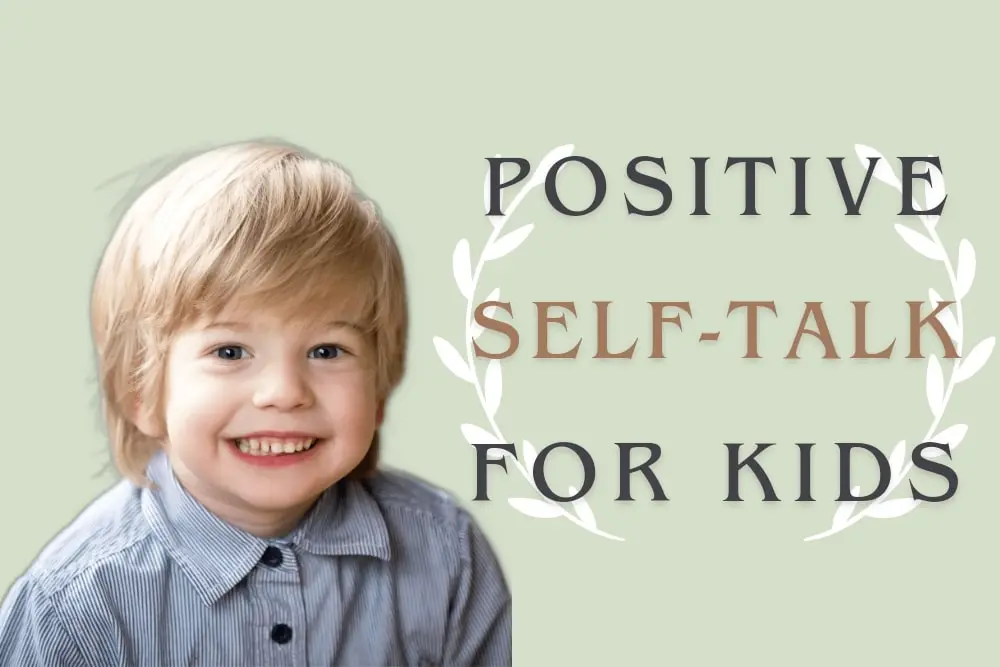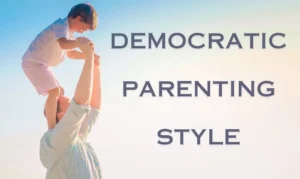Written by: Barbra Smith / Last updated: Feb 7, 2024
Self-talk for kids is when they say their thoughts and feelings to themselves secretly or loudly.
Kids nowadays face more negative energy than before from their environment, school, and family, which can lead them to have negative self-thoughts.
If this kind of self-talk is not handled wisely by parents, then there might be grave consequences for the child’s mental and physical health, such as depression, a lack of self-confidence, low self-esteem, and obesity.
It is the parent’s role and responsibility to instill positive thoughts and ideas in the kids so that they can have a successful life.
In this article, we are going to discuss the following:
What is positive self-talk for kids?
It is when kids say positive things to motivate themselves and gain more positive energy to overcome difficulties and challenges.
A study conducted by the National Center for Biotechnology Information with a sample of 554 children aged 8–18 found that boys are hostile and have more positive thoughts than girls.
In the case of young children, they had more negative thoughts of social and physical threats and expected failure more than older children.
Young children were more affected because their parents kept telling them emotional things like:
“I am afraid for you.”
This quote shows how much parents love and care for their children, but at the same time, unconsciously, they leave a negative trait in kids, which is being afraid that something bad might happen.
Parents should always say positive things when around their children, especially when they are still young so that they can have positive self-talk.
How do I teach my child positive self-talk?
Consider these tips when dealing with your kids:
Praise and support them until they succeed.
Children can have several difficulties when they do new things, which can make them feel discouraged.
It should be the parents’ role to support and praise the kids when they do something for the first time until they succeed, so they can have self-confidence in their abilities.
Teach them to respond to negative talk.
When children grow a little older, we should teach them to respond to anyone who says negative things about them.
This tip is essential because negative thoughts are stored in our unconscious minds and then reflect on our behavior and thoughts.
Use sticky notes everywhere.
It is a useful practice to write down positive sentences and affirmations with your kids and then distribute them all around the house.
These notes will keep your kids positive whenever they read them.
Teach them lessons from your childhood.
Remember negative thoughts and experiences from your childhood, and tell the kids how you reacted to them.
For example, when someone bullied me, I reported him to our teacher, and later she disciplined him.
These kinds of stories will teach the kids about the probable negative experiences they might face and how they should react to them.
Make progress in different skills with them.
Teaching your kids new and helpful skills will make them feel more confident.
I remember in my childhood, some of my friends knew more information about general topics than me because their parents had nurtured them with this information.
This unfortunate memory has given me negative thoughts about myself, so avoid this situation with your kids as much as you can.
Surround them with positive thoughts.
Avoid telling negative news in front of your kids or making them witness your arguments with your life partner.
Kids are greatly affected by the relationship between their parents, so make sure they see you in harmony with your life partner.
How do I turn negative thoughts into positive ones for kids?
“I have not failed. I have just found 10,000 ways that won’t work.” Thomas Edison.
Children do not have negative thoughts by default; they earn them from their surroundings or their neighborhood.
Turning negative thoughts into positive ones can be done by continuously repeating positive self-talk for kids; it will take time but will work.
Parents should also transform their negative critiques into positive ones.
For example, if the child does not obey you, do not say, “You are not a good kid.”
Instead, you should say, “You are a good kid, and I love you, but I want you to be better by listening to my advice.”
What is an example of positive self-talk for kids?
In my childhood, I was afraid of dogs because, at some point, a dog chased me for no reason on my way to school.
This negative experience has given me childhood trauma for a long time. After that, I learned that dogs can sense and smell the adrenalin in our bodies if we are afraid.
After knowing that information, I decided to do positive self-talk as a kid by saying repeatedly, “I am not afraid of dogs,” whenever I see a dog and until I pass it peacefully.
I kept repeating this sentence covertly until I overcame my fear of dogs.
What you should learn from this example is that you have to teach your children how to understand the nature of the difficulties we all might face and that positive self-talk is necessary to overcome them.
Positive effects of self-talk for kids
You can expect the following:
- Increased self-esteem
- High self-confidence
- Kids will have the courage to conquer their fears.
- The children will be more determined to finish challenging tasks.
- Positive self-talk for kids will be a normal lifestyle for them as they will make accomplishments in their careers later.
- Self-talk can improve cognitive performance and problem-solving skills.
Possible negative effects of self-talk on kids
It is possible that any kid could be overconfident, and that could lead him to be unrealistic.
This unrealistic thinking could lead to risky behavior and poor decision-making.
It can also lead the kid to feel too proud and look down on others, which may lead them to have a poor social life.





